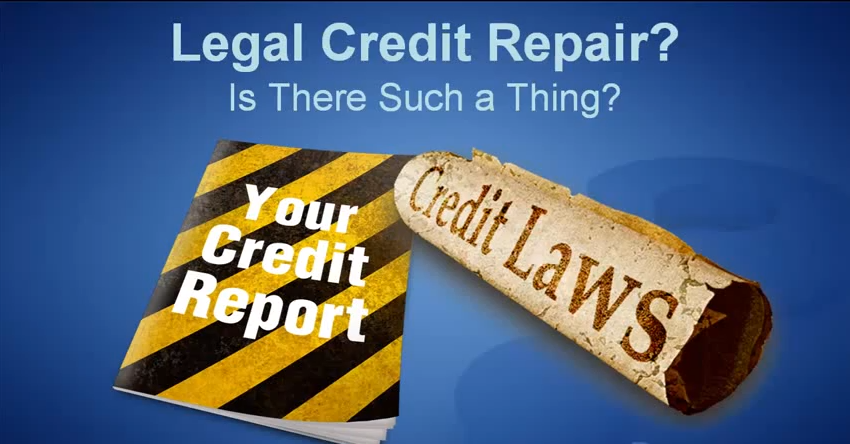Is There Such a Thing as Legal Credit Repair?
Do you think There is Such a Thing as Legal Credit Repair?Despite what some people believe about credit
repair, consumers have the legal right to repair their credit. The FCRA (Fair Credit
Reporting Act) allows and encourages you to question all information on your credit report;

legal credit repair
particularly items you think are inaccurate,misleading, or outdated. Not only does the
legal credit repair process work for errors but can also help remove “unverifiable” negative,
yet accurate, information. Rest assured, this legal credit repair process is perfectly legal.
To help you become familiar with the laws,we will briefly describe them – and you will
see just how much protection is provided to you, the consumer.
Legal credit repair and
the Fair Credit Reporting Act: the FCRA is also designed to promote fairness and privacy
of information.
Credit bureaus are not allowed to distribute credit information to anyone
who does not have a legitimate purpose forviewing the information. Businesses that furnish
information to the bureaus are also regulated by the FCRA and must follow legal procedures
such as investigate disputes and ensure all information is complete, accurate, and current.
To knowingly list anything that is false in any way is in violation of the FCRA. To continue
listing information after it has been verified as inaccurate is also a violation. Legal credit
repair and the Fair Debt Collection PracticesAct: the FDCPA protects consumers from abusive
or deceptive practices committed by collection companies. Legal credit repair and the Fair
Credit Billing Act: the FCBA is an amendment to the Truth in Lending Act that requires
creditors to promptly respond, in writing,to consumer billing complaints and investigate
billing errors. Until the investigation iscomplete, creditors cannot do anything to
adversely affect a consumer’s credit standing.Legal credit repair and the Equal Credit Opportunity
Act: the ECOA protects the consumer against discrimination based on race, color, religion,
national origin, sex, marital status, age,etc. This act also states that creditors must
provide reasons why an applicant was denied credit, and allows spouse account information
to be identified separately. Legal credit repair and the Truth in Lending Act: the TILA
protects the consumer by mandating all creditorsto specify, in writing, terms of finance charges
and credit transactions. The act allows fora three-day cancellation on certain credit
transactions.
Legal credit repair and the Gramm-Leach-Bliley Act: the GLBA requires
financial institutions to protect the privacy of consumer’s personal financial information.
Privacy policies must be distributed to the institution’s customers at a minimum of
once a year. The institution must also give the consumer notice and the opportunity to
“opt out” if personal financial information is disclosed to a non affiliated third party,
including unauthorized inquiries to your credit report data. You can go to the Federal Trade
Commission’s website FTC.GOV, and click on the consumer section for complete collection
of these laws. Remember, these laws allow you to question and initiate a legal investigation
of your credit information and repair it where necessary when information cannot be verified
– even though they don’t support you in providing false information or trying to cheat the system.
So the answer is YES, credit repair is legal

